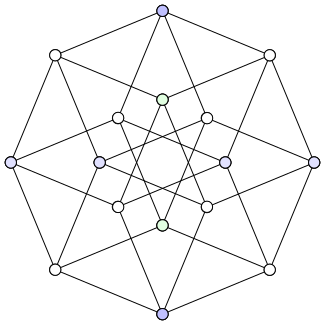Show that every positive rational number can be written as a quotient of products of factorials of (not necessarily distinct) primes. For example, \begin{equation*} \frac{10}{9} = \frac{2!\cdot5!}{3!\cdot3!\cdot3!} \end{equation*}
- A rational number can be expressed as the quotient of two integers.
- An integer can be expressed as the product of (not necessarily unique) prime numbers.
- By definition, $n! = n\cdot(n-1)\cdot(n-2)\cdot ... \cdot(1)$. Thus a prime number can be expressed as a quotient of two factorials: $p = \frac{p!}{(p-1)!}$
- If (p-1) is not prime, express $(p-1)!$ as $(p-1) \cdot (p-2) \cdot ... \cdot (p-n)!$ where $(p-n)$ is prime.
- Use 2.) to express the $(p-i)$, where $i \in \{1, 2, ..., n-1\}$, as products of primes, and apply 3.)
WLOG, take the example above. $10 = 2 \cdot 5 = \frac{2! \cdot 5!}{1! \cdot 4!} = \frac{2! \cdot 5!}{4 \cdot 3!} = \frac{2! \cdot 5!}{2! \cdot 2! \cdot 3!} = \frac{5!}{2! \cdot 3!}$, $9 = 3 \cdot 3 = \frac{3! \cdot 3!}{2! \cdot 2!}$
$\frac{10}{9} = \frac{5! \cdot 2! \cdot 2!}{2! \cdot 3! \cdot 3! \cdot 3!} = \frac{2! \cdot 5!}{3! \cdot 3! \cdot 3!}$
